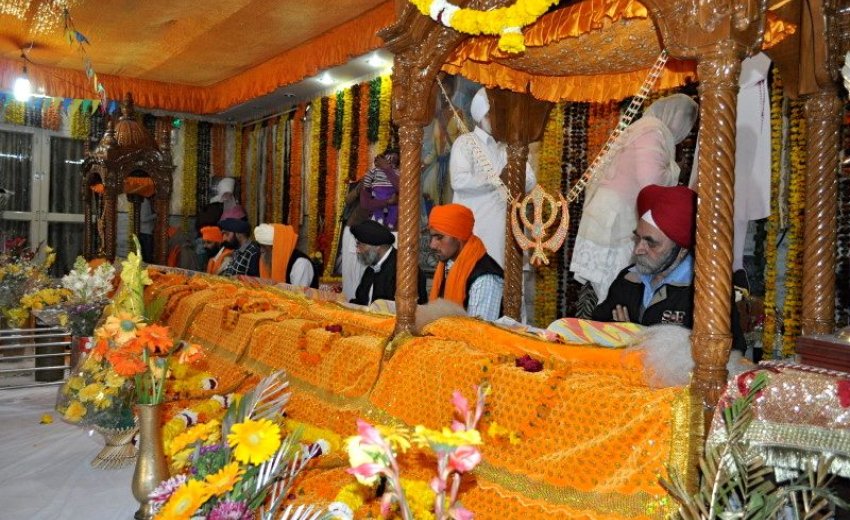 Many years ago, I happened to be in Nanded (Maharashtra) and went to Hazur Sahib gurdwara to pay homage to the Tenth Guru, Gobind Singh, who was assassinated there in 1708.
Many years ago, I happened to be in Nanded (Maharashtra) and went to Hazur Sahib gurdwara to pay homage to the Tenth Guru, Gobind Singh, who was assassinated there in 1708.
It is one of the most sacred of gurdwaras.
I came across something which baffled me.
There was a row of cabins separated by thin walls of plywood in which a dozen akhand paths (non-stop reading of the Guru Granth by a relay of paathees - readers) were being performed with no one listening to them.
I sought explanation from the head granthi (caretaker). He told me people from India and abroad sent money for akhand paths, to be followed by Guru-ka-langar, as thanksgiving or for wish fulfilment.
I could not comprehend how prayers recited by someone else could benefit a devotee who paid for them.
However, I found such practices more prevalent in other communities, as well.
Hindus have havans (fire ceremonies) performed at distant places.
Muslims pay expenses to people going for Haj, hoping that benefits will accrue to them.
Even Mirza Ghalib pleaded with Emperor Bahadur Shah Zafar to take him along on Haj and he would give his tswaab (benefit) to his majesty. However, the British did not allow the Mughal king to leave Delhi.
What came as a big surprise to me was to find that Europeans, Canadians and Indian Christians are also into outsourcing prayers. Well-to-do English, Canadians and Americans, who can't be bothered to go to church, paid for holy masses in euros or dollars, outsourcing religious rituals to Kerala Christian priests.
I read about it in the latest Private Eye of May 15. To wit: "The outsourcing of American and European jobs to low-wage countries like India has been happening for years," Archbishop Jacob Thoomkuzhy told reporters in Kerala, "and religious outsourcing is no different. Because of shortage of priests in the industrialised world, prayers for the dead and holy masses are being paid for by the westerners, then offshored to India."
"It is a lucrative business for churches in Kerala. Mass intentions that are paid for in dollars or euros are carried out here by local priests. The prayers are recited, and the fees paid by westerners help cash-starved parishes here. So what's the problem? " asked the Archbishop.
For example, when British newspapers whipped up a storm about David Beckham's affairs, a Beckham fan from London paid 350 euros for a mass to save the soul of his hero.
The holy mass, however, was not held in a London parish.
It was outsourced by the church authorities to a Bishop in India, who passed it to a remote church at Anthikad in Thrissur diocese, where the mass took place.
"We do not want to look at this commercially, but it is a huge boost to the local religious economy here,'' said the Archbishop.

